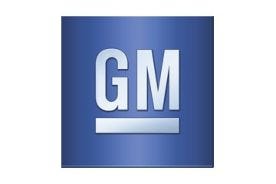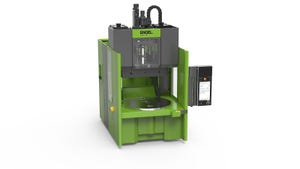Problems with automotives have roots in the OEMs
What a difference a few millimeters make. Lately, we've heard GM apologizing for the tragic deaths and injuries of GM vehicle owners over an ignition switch problem that caused the vehicles to shut down - and air bags failing to deploy - on 2.6 million vehicles. GM CEO Mary Barra announced the firing of some high-level executives and engineers including Ray DiGiorgio, the switch engineer who'd designed the new switch but failed to put a new part number on it, and Gary Altman, a development engineer.
July 3, 2014
What a difference a few millimeters make. Lately, we've heard GM apologizing for the tragic deaths and injuries of GM vehicle owners over an ignition switch problem that caused the vehicles to shut down - and air bags failing to deploy - on 2.6 million vehicles. GM CEO Mary Barra announced the firing of some high-level executives and engineers including Ray DiGiorgio, the switch engineer who'd designed the new switch but failed to put a new part number on it, and Gary Altman, a development engineer.
 I looked a diagram of the ignition switches and noticed that the original ignition switch was 10.6 millimeters long, and the replacement switch was 12.2 millimeters long - the longer switch produced more tension to prevent vibration from causing the switch to disengage. It seems like a small problem but one with big consequences.
I looked a diagram of the ignition switches and noticed that the original ignition switch was 10.6 millimeters long, and the replacement switch was 12.2 millimeters long - the longer switch produced more tension to prevent vibration from causing the switch to disengage. It seems like a small problem but one with big consequences.
Since the first announcement, GM has announced the recall of 8.45 million vehicles in North America so far this year. Chrysler has now joined GM in ignition switch recalls.
At the same time, more and more auto parts suppliers are facing cases of price-fixing. The most recent case involves Honda Motor Co. supplier Showa Corp., which was charged in U.S. District Court in Cincinnati with one count alleging it participated in a price-fixing conspiracy to suppress competition. Showa pleaded guilty and agreed to pay a fine of $19.9 million.
The U.S. Justice Department is continuing to conduct a "wide-ranging investigation into price-fixing and bid-rigging in the parts industry," said an Associated Press report. Authorities involved in the investigation say that 27 companies and two dozen executives have pleaded guilty or agreed to plead guilty as a result.
Could it be that faulty auto parts (like ignition switches), counterfeit parts (like the polymer gas pedal arms), and these conspiracies to rig bids and fix prices are somehow connected?
Anyone who's been a supplier to the automotive industry for any period of time has probably experienced the purchasing practices of the vehicle makers including the so-called "rebates" deducted from invoices, payments delayed for months until PPAP, and refusal to accept piece price increases even though the cost of raw materials continue to rise through the OEM's Annual Price Reduction (APR) scheme. The only thing that goes down every year in Michigan is the temperature in November!
Other practices that put suppliers in a bind are bidding jobs and being told that the competition came in 30 percent under yours and if you want the job you need to meet that low bid. Never mind that you're never allowed to see the bid or the name of the competitor who underbid you.
It dawned on me that perhaps the suppliers were getting just a bit fed up with all these shenanigans and decided that they could play a few games of their own. Maybe these suppliers got the idea that if they all bid the same price for the various components, the OEMs wouldn't be able to play that game of "a competitor bid 30 percent less than you did."
Take the case noted in an IHS SupplierBusiness editorial a few months back, when the "European Commission found six suppliers involved in fixing prices of automotive bearings sold to automakers. The commission found that these suppliers colluded to secretly coordinate their pricing strategy against automakers between April 2004 and July 2011. These bearing suppliers coordinated steel price increases to their customers, colluded on Requests for Quotations (RFQ) and for Annual Price Reductions (APR) from customers, and exchanged commercially sensitive information."
The SupplierBusiness editorial noted, "while five of these six suppliers [whose names are listed in the SupplierBusiness editorial] attracted a combined fine of $1.3 billion, the sixth supplier was let off without paying a fine for blowing the whistle on the cartel."
A word of caution to the big OEMs: If you really don't want your suppliers to make money supplying you with high-quality parts built to spec, they will find a way to make money.
It's not honest and it's not right. But then neither are some of the purchasing and payment tactics that the automakers have used on their suppliers for more than two decades.
Play fair and everyone wins! Play dirty and everyone pays the price!
About the Author(s)
You May Also Like




